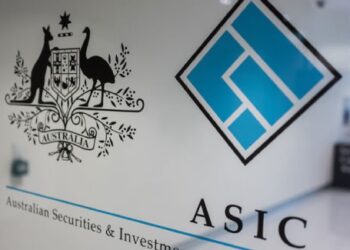From 1 July, the indexation of the contribution caps, transfer balance cap (TBC) and total super balance (TSB) takes place. With a range of new superannuation changes taking into effect, new opportunities emerge for super with the commencement of the 2021–22 financial year.
Colonial First State head of technical services Craig Day said changes to contribution rules and caps increase opportunities to get more money into superannuation, including the ability for those aged 65 or 66 at the start of the financial year to utilise the non-concessional cap bring-forward rule.
From 1 July 2021, the superannuation guarantee rate will increase for employers from 9.5 per cent to 10 per cent. The superannuation guarantee rate will then continue to increase by 0.5 of a percentage point each year until it reaches 12 per cent on 1 July 2025.
“In addition, members may be able to make concessional contributions exceeding $27,500 from 1 July 2021 by utilising carry-forward concessional contributions,” he said.
“Since 1 July 2018, members can carry forward any unused concessional cap amounts for up to five years, and use these amounts to make higher concessional contributions in a financial year where their total superannuation balance was less than $500,000 at the end of the previous financial year.”
SuperConcepts technical executive manager Graeme Colley said for anyone who is considering making a salary sacrifice to the SMSF, it may also be worthwhile to make adjustments to the amount being salary-sacrificed to match the increase in concessional contributions to $27,500.
Meanwhile, the non-concessional contributions cap has been increased to $110,000 from 1 July 2021. Mr Colley said this means that anyone with a TSB of less than $1.7 million from that time can make non-concessional contributions of up to $110,000 if they are under 67 years of age.
“If they are between 67 and under 75, non-concessional contributions can be made, provided they meet the work test of 40 hours in 30 consecutive days,” he said.
“For anyone under 67 years old at the beginning of the financial year, it is possible to access the bring-forward rule of up to two years’ non-concessional contributions from the year in which a person makes more than the standard amount of $110,000.”
As an example, if a person who is under 67 years old and has a total super balance of $1.3 million on 30 June 2021 if they make a non-concessional contribution of greater than $110,000 during the 2021–22 financial year.
Mr Colley noted they will trigger the bring-forward rule and can then contribute up to $330,000 at any time during the 2021–22, 2022–23 or 2023–24 financial years.
“A word of warning for anyone who has triggered the bring-forward rules in the 2019–20 or 2020–21 financial years,” Mr Colley warned. “Once the bring-forward rule has been triggered in a year prior to indexation, there is no access to the increase until the set period has ceased.
“For example, if a person triggered the bring-forward rule in the 2020–21 financial year and they were entitled to access the three-year rule, they would only be entitled to three times the standard non-concessional contribution for the year in which the trigger occurred, which is $300,000 ($100,000 x 3).”
Meanwhile, other opportunities in contributions to watch out for include the repeal of excess concessional contributions charge, according to Mr Day.
“From 1 July 2021, penalties for exceeding the concessional contributions cap will be reduced,” he said.
“The excess concessional contributions charge will no longer be payable where a member exceeds their concessional contributions cap, and has an amount of excess concessional contributions included in their assessable income.”
Furthermore, it will also be important to keep an eye out for existing timings on COVID-19 early release recontributions.
“From 1 July 2021, a person that accessed their super to withdraw up to $20,000 of COVID-19 early release amounts will be permitted to recontribute an amount equal to the amount they withdrew up until 30 June 2030,” Mr Day said.
“COVID-19 early release contributions will also not count towards the non-concessional contributions cap and a deduction cannot be claimed for these contributions.”


